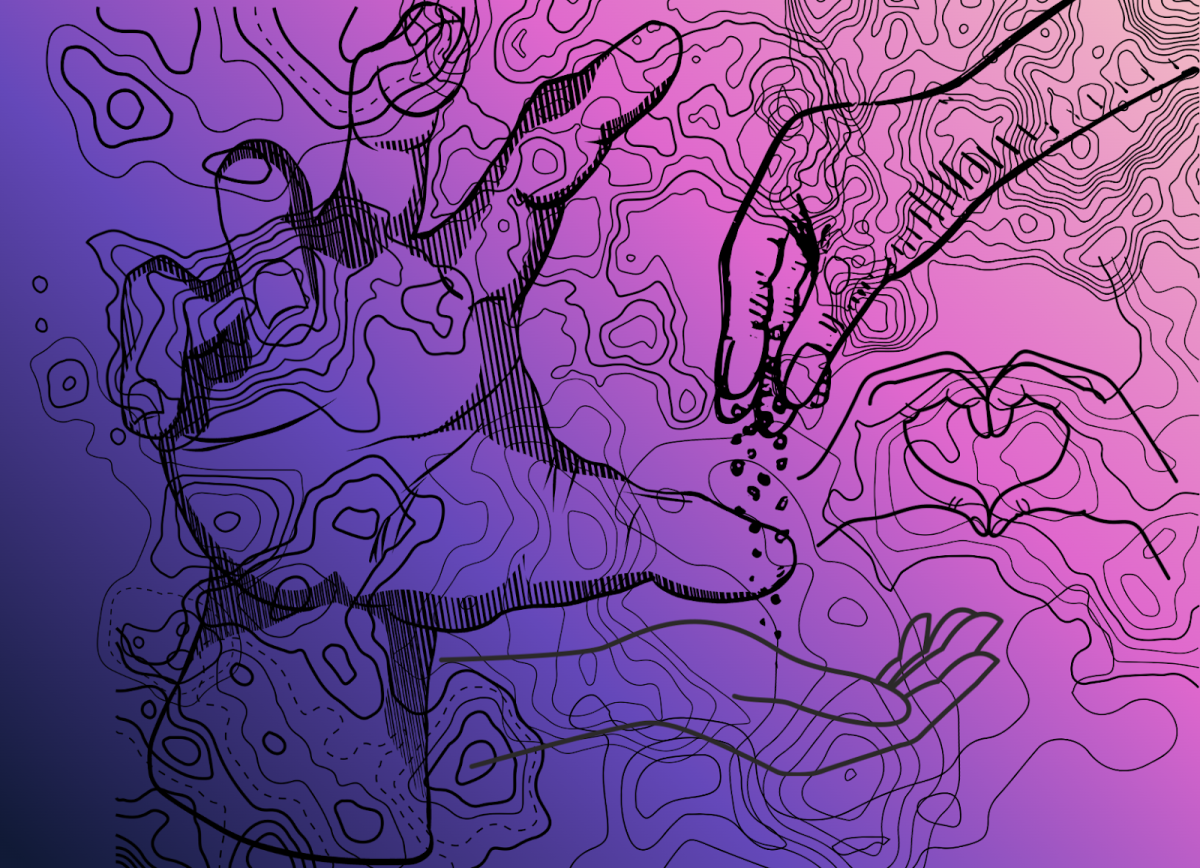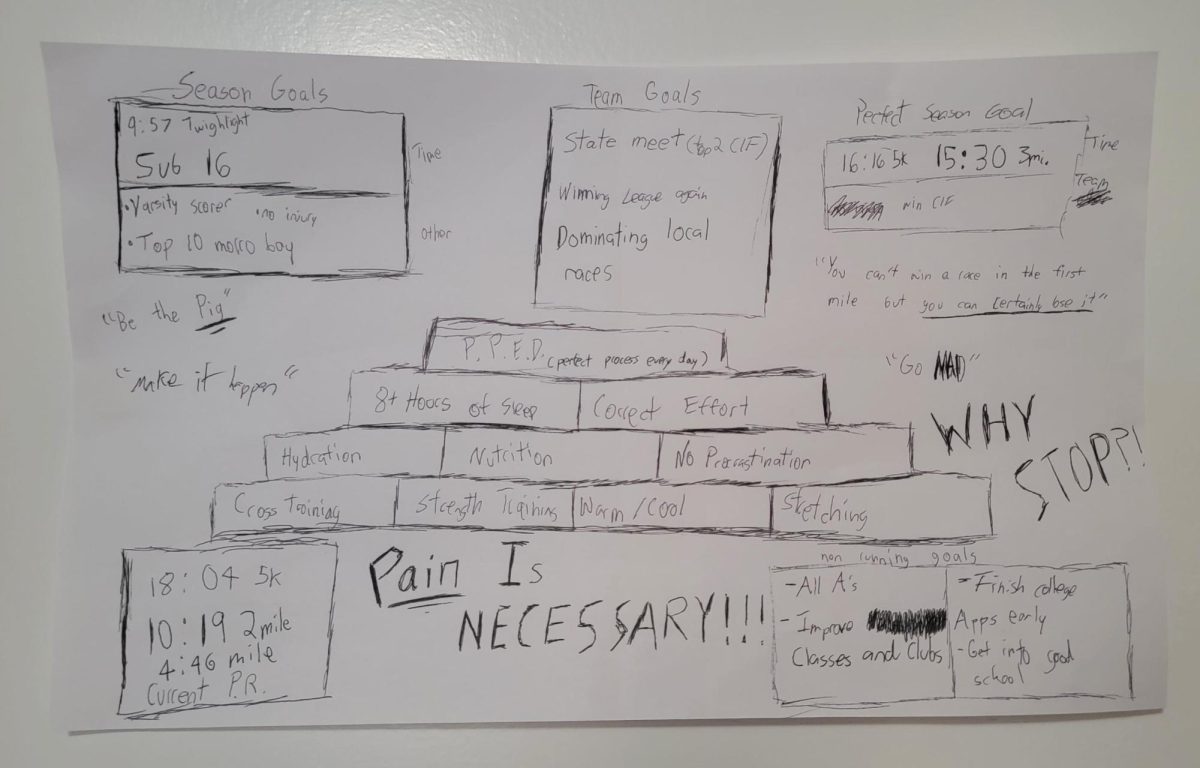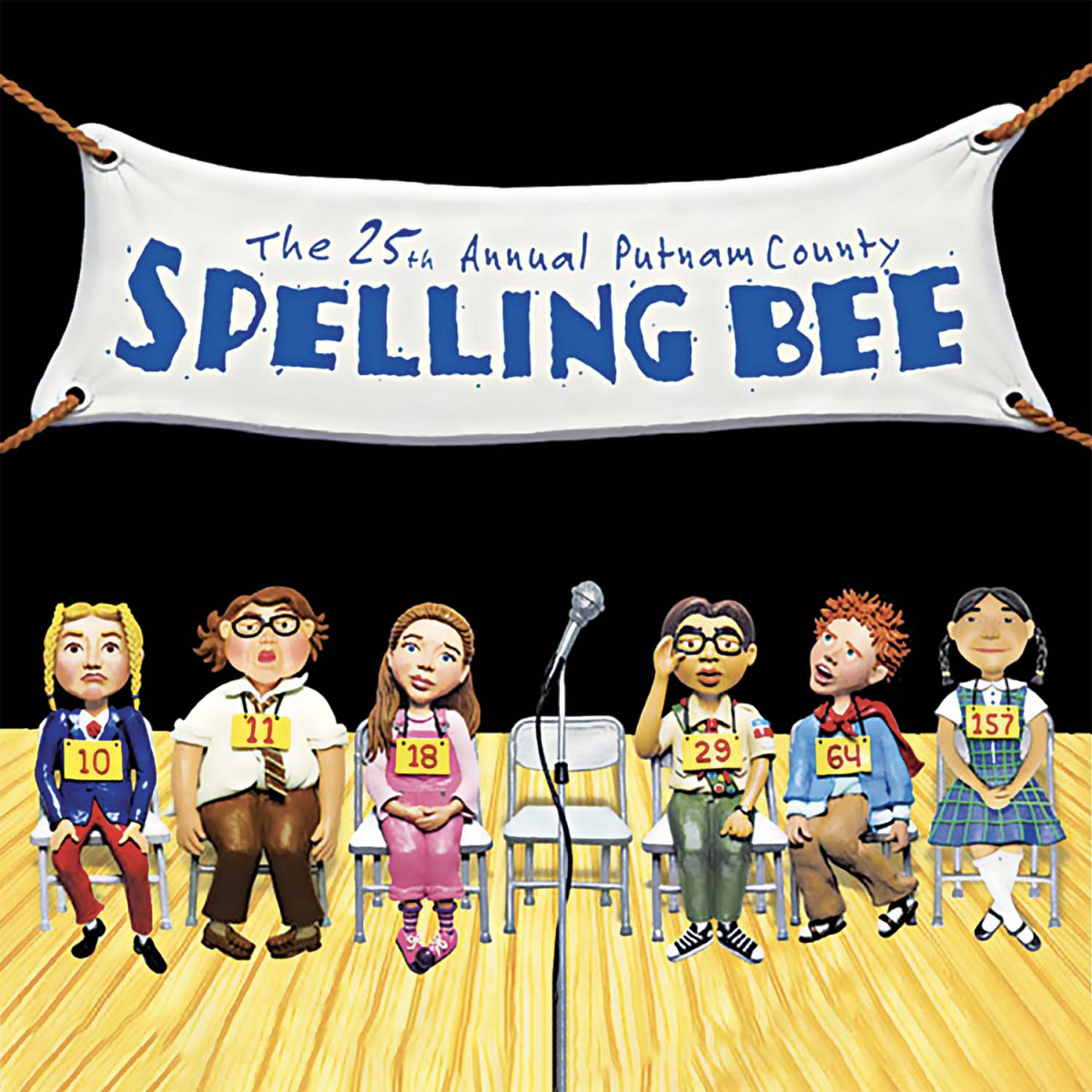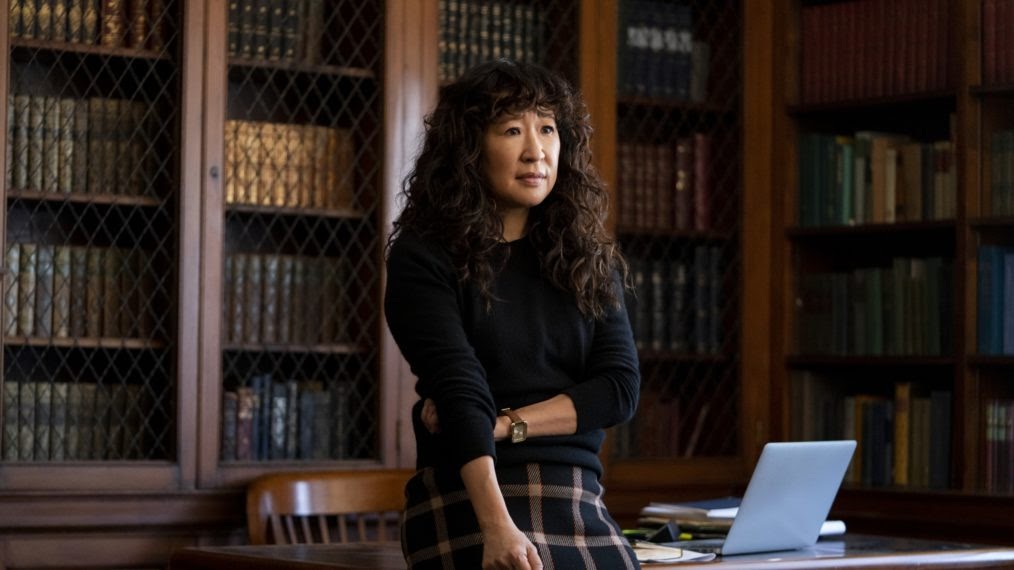Photo courtesy of Netflix.
The new Netflix special, “The Chair”, features actress Sandra Oh as Ji-Yoon Kim, shining light on an unseen view of elite college professors and their departments: exclusion of marginalized groups, ageism, and the effects of canceled culture.
Avid watchers of Netflix at San Luis Obispo High School may feel empowered by this show because it brings forward an untold and refreshing story about women of color educators. Yet, the focus is too much shifted away from this crucial message.
The premise of this six episode show revolves around the main character Ji-Yoon, the new department head of the English department at Pembroke University (a made up “lower-tier ivy”). She is the first woman of color department head, navigating obstacles like reforming the department to current students and their educational interests, fighting back against discrimination, and being a single mother, all at the same time.
Viewers are first introduced to the English department containing mostly old white men who stick to very traditional methods of teaching, something that is causing their enrollment to drop. Ji-Yoon’s task here is to either fire teachers or get them to change their way of teaching. She does this with the perspective of a young Asian woman, pushing teachers to change the literature they teach to be more modern or incorporate more modern critiques of literature. In this respect, Ji-Yoon is portrayed as a strong, influential character who emphasizes the ability of women of color to reach important positions as educators and make a difference.
The main conflict of the show arises when one member of the English department, Bill Dobson, does a Nazi salute in class, which is recorded by students and distributed. The English department comes under fire, making it Ji-Yoon’s job to save it. This conflict consumes the second half of the season, forcing Ji-Yoon’s character to focus only on saving Bill’s reputation.
However, in the solution of this conflict, Ji-Yoon’s identity and unique position as the first woman of color as a department head is erased. The show attempts to make subtle hints at her identity, in small examples of discrimination that she faces, like the white male professors that discredit her opinions, but these details are rendered insignificant as Ji-Yoon is consumed by resuing the reputation of a white man in her department. This shift in narrative is understandable, seeing as though the show is only 6 episodes long, but Ji-Yoon is turned into just another head of the English department.
With new media in the form of movies like “Shag-Chi”, the emphasis on Asian American stories has become increasingly popularized. Yet, “The Chair” ultimately disappoints, leaving viewers unsatisfied as it ignores larger structural issues at hand.
































